
Reaching New Levels in Groundwater Monitoring
As regions around the world face record-breaking droughts, scientists are using seismology to track groundwater levels, showing that well-managed pumping strategies have a big impact.
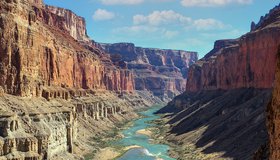
Boost in Drought Mitigation Funding from Inflation Reduction Act
The U.S. Department of the Interior has announced new funding to protect the sustainability of the Colorado River System. $4 billion will be focused on water management and conservation efforts in the Colorado River Basin and other areas experiencing similar levels of drought.

Climate Change Made Hurricane Harvey's Flooding Worse
New research shows that if it were not for climate change, up to 50 percent of residences in Houston's Harris County would not have been flooded by Hurricane Harvey five years ago.

Cities Grapple Future Risk After Recent Flash Floods
Dallas is only the latest flood disaster. The many effects associated with flooding show why a holistic approach to planning for climate change is needed, and what communities can learn from one another in the face of a warming planet.
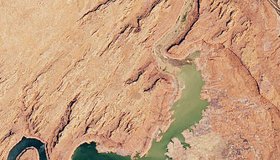
Lake Powell Still Shrinking
The second largest reservoir in the United States now stands at its lowest level since it was filled in the mid-1960s.
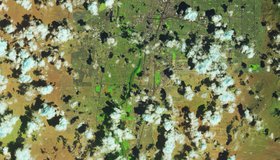
Rio Grande Runs Dry, Then Wet
Residents of Albuquerque saw a dry riverbed for the first time since 1983.
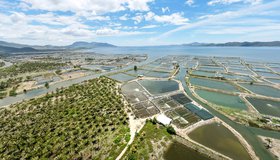
Shrimp Farm Shape Affects Groundwater Pollution
Coastal aquaculture has grown rapidly in recent decades. New findings may help decision makers optimize shrimp-farm layouts, which could help improve coastal water quality.
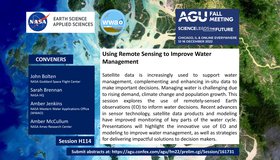
Call For Abstracts: Using Remote Sensing to Improve Water Management
WWAO is hosting a session at the 2022 American Geophysical Union Fall Meeting this December, jointly with NASA's Water Resources Program. Our session looks at how to improve water management using satellite Earth observations. We invite you to join us!

Event: 2022 National Water Use Data Workshop
The 2022 National Water Use Data Workshop will focus on improving water-data management and sharing. The event is led by WWAO collaborators including the Western States Water Council Water Information Management Systems Group, U.S. Geological Survey, Interstate Council on Water Policy, and Internet of Water.
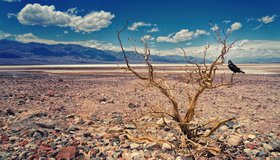
Rare ‘Triple’ La Niña Climate Event Looks Likely
La Niña may be sticking around, unusually, for a third year running. This ‘triple dip’ event — lasting three years in a row — has happened only twice since 1950. It could mean more drought in the southern U.S. and become more regular as the planet warms.